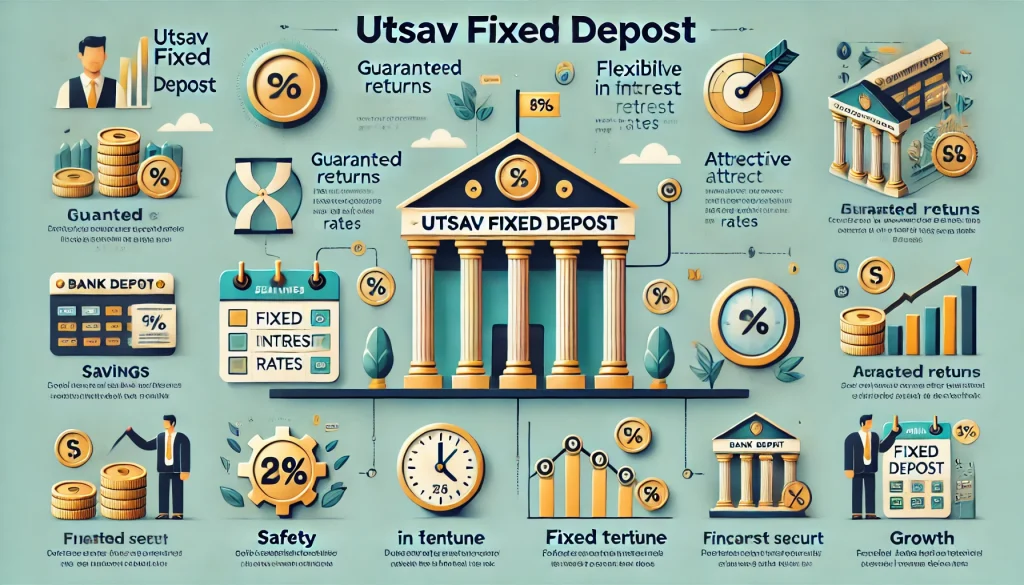
Non-Resident Indians (NRIs) often seek secure and rewarding investment options. One such avenue is the Non-Resident Ordinary Fixed Deposit (NRO FD). This article will provide a detailed overview of NRO FDs, covering key aspects such as their features, benefits, risks, and the process of opening one. Whether you’re a seasoned investor or a newcomer, understanding NRO FDs can help you make informed decisions to grow your wealth.
What is an NRO FD?
An NRO FD, or Non-Residential Ordinary Fixed Deposit, is a financial instrument offered by Indian banks to NRIs and individuals of Indian origin living abroad. It allows them to deposit foreign earnings, such as income from abroad, into an Indian bank account. The deposited funds are held in Indian rupees and are subject to the prevailing interest rates.
Latest NRO FD Interest Rates 2024
Interest rates on NRO FDs can vary across banks and tenures. They often differ from the rates offered to resident individuals due to regulatory guidelines and economic conditions.
| Bank | General Public Interest Rates | Senior Citizen Interest Rates |
|---|---|---|
| HDFC | 3.00% – 7.25% | 3.50% – 7.75% |
| SBI | 3.00% – 7.10% | 4.75% – 7.60% |
| ICICI | 3.00% to 7.10% | 3.50% to 7.60% |
| Punjab National Bank | 3.50% to 7.25% | 4.00% to 7.75% |
| YES bank | 3.25% to 7.75% | 3.75% to 8.25% |
Features of NRO FD
NRO FDs come with a set of attractive features that make them an enticing investment option for NRIs:
- Repatriation of Interest – While the principal amount cannot be repatriated, the interest earned on NRO FDs is repatriable up to a limit of $1 million per financial year, subject to tax deduction at source.
- Tenure Options – Investors can choose various tenure options for their NRO FDs, usually ranging from 7 days to 10 years, allowing for flexibility and alignment with their financial goals.
- Tax Deduction at Source (TDS) – Interest earned on NRO FDs is subject to TDS as per Indian income tax laws. The TDS rate is generally higher for NRIs compared to resident individuals.
Benefits of NRO Fixed Deposits
Investing in NRO FDs presents several advantages:
- Stable Returns – NRO FDs provide consistent returns due to their fixed interest rates, making them a reliable choice for risk-averse investors.
- Currency Conversion – Investors can convert foreign earnings into Indian currency and earn interest on the converted amount, helping them maintain financial stability in both countries.
- Local Expenses – NRIs can use the interest earned from NRO Fixed Deposits to meet their local expenses while staying in India, making them a convenient investment avenue.
How to Open an NRO FD Account?
Opening an NRO FD account is a straightforward process:
- Choose a Bank: Research various Indian banks offering NRO FDs. Compare interest rates, tenure options, and additional services.
- Gather Documents: Prepare necessary documents, including your passport, visa, PAN card, and overseas address proof.
- Visit the Bank: Visit a local branch of your chosen bank or complete the process online, if available.
- Fill Application: Fill out the NRO FD application form, providing accurate information.
- Fund Transfer: Transfer funds from your NRE/NRO account or through foreign currency remittance.
- Submit Documents: Submit your documents for verification.
- Confirmation: Once verified, you’ll receive confirmation of your NRO FD.
Documents Required for NRO Fixed Deposit
In order to open a Fixed Deposit account, individuals will need to provide the following documents –
1. Identity Proof, such as
- Passport,
- Permanent Account Number (PAN) Card, etc.
2. Address Proof such as
- Aadhaar card,
- Voter ID,
- Utility Bills, etc.
Note* – If any further documents are required, the bank will mention them.
Who Can Invest in NRO FD?
NRO FDs cater specifically to the financial needs of NRIs and PIOs (Persons of Indian Origin) who wish to invest their foreign income in India. Both individual and joint accounts are permissible under this scheme.
Conclusion
Non-Resident Ordinary Fixed Deposits (NRO FDs) offer NRIs a reliable and secure investment avenue. These fixed deposits combine stability with decent returns, making them popular for those looking to grow their wealth while maintaining ties with India. By understanding the features, advantages, and process of opening NRO FDs, NRIs can make informed decisions that align with their financial goals and aspirations.
FAQs
Yes, the interest earned on NRO FDs is freely repatriable. However, there are certain limits and conditions imposed by the Reserve Bank of India
Interest earned on NRO FDs is subject to TDS (Tax Deducted at Source) in India. The rate of TDS is determined by the applicable tax treaty between India and the NRI’s home country.
Yes, NRIs can open NRO FDs jointly with Indian residents. However, the interest income will be taxable for the Indian resident.
Premature withdrawal is allowed for NRO FDs, but it typically comes with a penalty in the form of a reduced interest rate. The exact penalty varies among banks
NRIs can convert their resident savings accounts to NRO accounts to open NRO FDs. This ensures compliance with FEMA (Foreign Exchange Management Act) regulations.
Yes, you can nominate a beneficiary for your NRO FD. In case of the depositor’s demise, the nominee can claim the proceeds
Disclaimer
This article is solely for educational purposes. Stable Money doesn't take any responsibility for the information or claims made in the blog.


